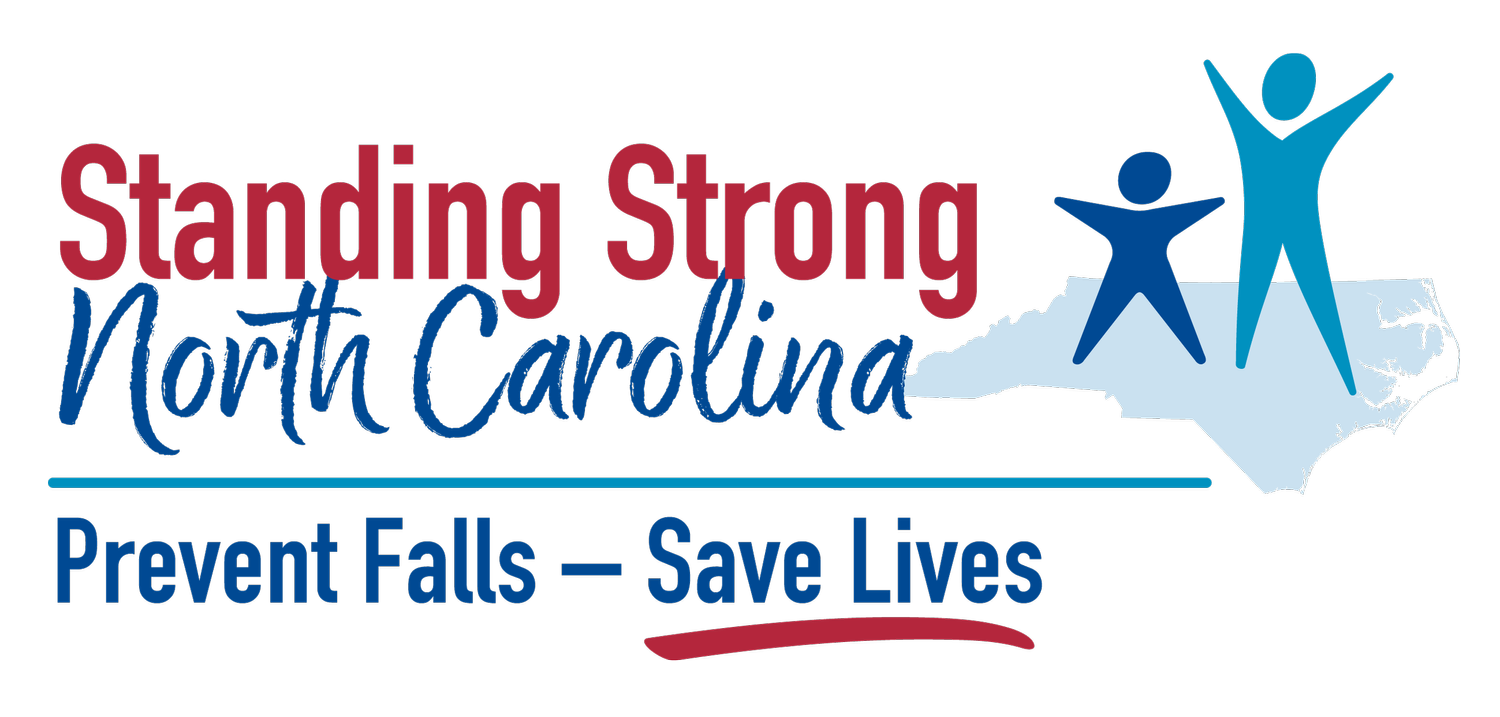
Resources to prevent falls
Why is preventing a fall so important?
Falls can be serious at any age, but for adults 55 and older, they can be dangerous. Falls are NOT a normal part of aging and most falls can be prevented.
There are many reasons why people fall, so we need to prevent falls in different ways. Some reasons include a fear of falling, weakness, obstacles in your surroundings, health issues and even side effects from medicines. Explore T.E.A.M. below and remember these steps for preventing a fall.
Talk to a healthcare provider, pharmacist, family and friends.
Exercise to improve your balance and strength.
Act to get your eyes, ears, and feet checked annually.
Make your home safer.
Talk to a doctor, pharmacist, family and friends about falling
-
Talk to a Doctor
Take the free online NCOA Falls Free CheckUp
Download this CDC Stay Independent checklist and review your answers with a doctor.
Find more tips on starting the conversation with your doctor
-
Talk to a Pharmacist
Some medicines can make you sleepy or dizzy, which can increase your fall risk. This flyer has a helpful question guide and a list of medication side effects.
Ask your pharmacist to review your medicines and if they increase your risk of a fall.
-
Talk to your family and friends
Are you afraid of telling your family or friends that you had a fall or a fear of falling? You are not alone.
Read more about how to talk with family and friends about falling.
Find an Exercise Program
-
Evidence-Based Programs
Doing strength and balance exercises at least 3 times a week can help lower your risk for falling. Find a local falls prevention no-cost exercise program near you.
-
At-Home Exercises
Learn more about working with a physical therapist and some at-home exercises you can try.
-
Find your local Senior Center
Use the Find a Senior Center Map to see what exercise programs are offered near you.
Get your Eyes, Ears and Feet Checked Annually
-
Resources for Individuals with Vision Challenges
Find Vision Loss resources from NCDHHS
Changes in your eyesight, even small ones, can make it harder to judge distances, see things in your path, and know where you are in space. This can make you more likely to fall.
-
Services for Individuals with Hearing Loss
Find local resources from NCDHHS
If you have ear conditions, you may feel dizzy, have trouble hearing, and lose your balance easily. This can make you more likely to fall.
-
Finding Well-Fitting Footwear and Annual Check-ups
Because your feet change over time, getting them checked each year can help with pain, improve your balance, and make sure you have shoes that fit well.
Make your home safer
-
Find Local Resources for Home Modifications
Use our resource map to find local home modification and repair service providers near you.
Learn more about how to modify your home to prevent falls through your local Area Agencies on Aging.
-
Prevent Falls Room-by-Room
Learn how to make prevent falls room-by-room from the National Institute of Aging.
Find local home modification service providers at the bottom of their page.







